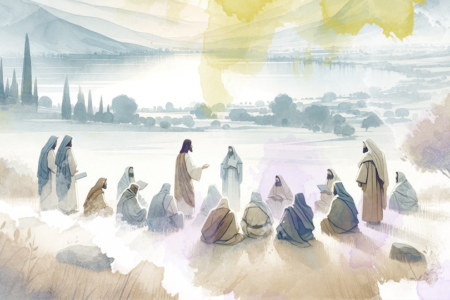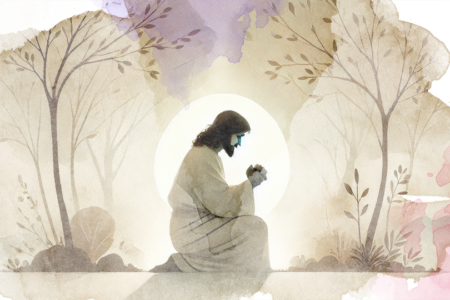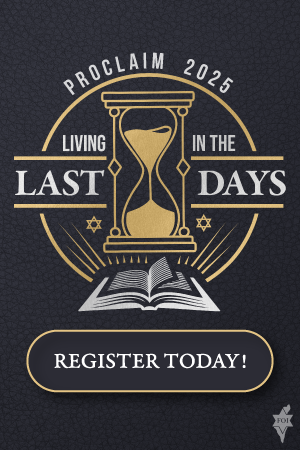Three Minutes with the International Director Aug/Sep 1977
If I had been called upon to write the epitaph of Moses, I probably would have written, “Moses, God’s lawgiver is dead, or Moses, God’s statesman is dead,” or “Moses, God’s miracle worker is dead.” But when God, Himself, wrote the epitaph for Moses, He wrote,
“Moses my servant is dead …” Joshua 1:2
He was speaking to Joshua, the heir apparent to the Jewish nation. At the very outset, God wanted Joshua to know that what He was preeminently looking for was not a lawgiver, a statesman or a miracle worker, but a servant. “Only be thou strong and very courageous, that thou observe to do according to all the law, which Moses my servant commanded thee: turn not from it to the right hand or to the left, that thou mayest prosper whithersoever thou goest”. Joshua 1:7
That Joshua learned that lesson is nobly testified to by the last chapter of the book that bears his name.
A great deal of history had now passed. Joshua had led the children of Israel across the Jordan River in conquest of the Land of Promise. Most of the inhabitants had been driven out. The people were dwelling in peace. Joshua was now an old man but not so old and eyes not so dim that he did not see the drift toward danger. Complacency had begun to set in. The people had begun to fraternize with those who had not been driven from the land, and now following the commercial and social interaction, the Jews began to be fascinated by the heathen deities. Joshua had to act. The nation was in danger of forsaking the true and living God for false deities. He called for a meeting of the Jewish leadership at Shechem. The location was significant. The same kind of problem had developed in the days of Jacob with grievous consequences (Gen. 34). The location Joshua chose would be a vivid reminder of that fact.
In a courageous farewell address Joshua reminded the people that it was Jehovah who brought Abraham from Ur to the Promised Land and gave him a seed; it was Jehovah who brought the plagues on Egypt and delivered the people; it was Jehovah who led the nation over the Jordan River in conquest of the Promised Land; it was Jehovah who had guided and blessed the nation from its inception to the present hour. In marked contrast, he was in effect asking, “What have the heathen gods done for you?” Then he threw down the gauntlet of challenge; ” . . choose you this day whom ye will SERVE; whether the gods which your fathers SERVED that were on the other side of the Euphrates River, or the gods of the Amorites, in whose land ye dwell: but as for me and my house, we will SERVE the Lord” Joshua 24:15
In a day of potential apostasy, a single faithful servant called the people back to God.
Rising majestically from the Mediterranean Sea, at present-day Haifa, is the Mount Carmel mountain range. More than four hundred and fifty years after the death of Joshua, the prophet Elijah stood at the head of Mount Carmel facing the prophets of Baal. It was a day of great apostasy — things were so bad that the prophet complained to God that he was the only one who had not bowed the knee to Baal. Israel’s king; was the wicked Ahab, and he took to wife a Sidonian by the name of Jezebel. She brought priests and idolatrous worship with her which quickly spread throughout the land of Israel.
Confrontation was inevitable. A total of eight hundred and fifty false prophets on one side; a solitary prophet of God on the other. On the sidelines stood the undecided multitude. A truly dramatic spectacle was about to begin. Elijah was about to throw down the gauntlet of challenge. In an earlier day, Joshua challenged, “. . . choose you this day whom ye will serve . . .” (Joshua 24:15). Elijah framed his challenge with the words, “. . . How long halt ye between two opinions? If the Lord be God, follow him; but if Baal, then follow him .. .” (1 Kings 18:21).
An altar and sacrifice were prepared, and it was agreed that the God who could consume the sacrifice would indeed be the true God. Elijah said to the prophets of Baal,
“And call ye on the name of your gods, and I will call on the name of the Lord; and the God who answereth by fire, let him be God. And all the people answered and said, It is well spoken” 1 Kings 18:24
From morning until afternoon, to the mocking voice of Elijah, the false prophets ranted and raved and cut themselves and danced, wildly calling on their gods — but heaven was deafening by its silence.
Now it was Elijah’s turn,
“And it came to pass at the time of the offering of the evening sacrifice, that Elijah, the prophet, came near, and said Lord God of Abraham, Isaac, and of Israel, let it be known this day that thou art God in Israel, and that I am thy SERVANT, and that I have done all these things at thy word. Hear me, O Lord, hear me, that this people may know that thou art the Lord God, and that thou hast turned their heart back again. Then the fire of the Lord fell, and consumed the burnt sacrifice, and the wood, and the stones, and the dust, and licked up the water that was in the trench. And when all the people saw it, they fell on their faces, and they said, The Lord, he is God; the Lord, he is God” 1 Kings 18:36-39
Once again in a day of apostasy, a single faithful servant had called the people back to God.
Today, the appeal of ancient false deities appears in modern garb. In the sophistication of our day, it’s not so much gods carved out of wood and stone — gods that can neither see nor speak. Today the appeal is far more subtle — but just as deadly. Twentieth century man looks with disdain and ridicule on the ancients who worshipped idols. In their stead, however, he has substituted his own gods, not physical but mental, not visible but psychological. Today men worship at the shrines of humanism, pragmatism, emotionalism and empty bankrupt traditions.
If anyone wants to hear the voice of God, he must turn or return (whatever the case may be) to the Bible. For therein God speaks to hearts. Hear again the challenge of Joshua and Elijah the servants of the Lord: “. . . choose you this day whom ye will serve . . .” and” … How long halt ye between two opinions?”







